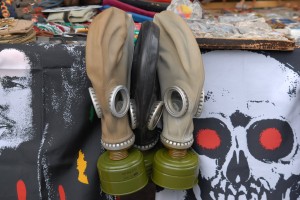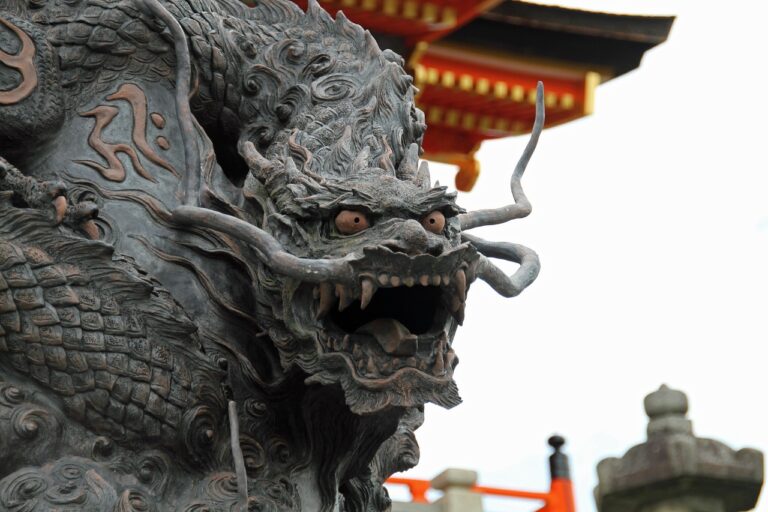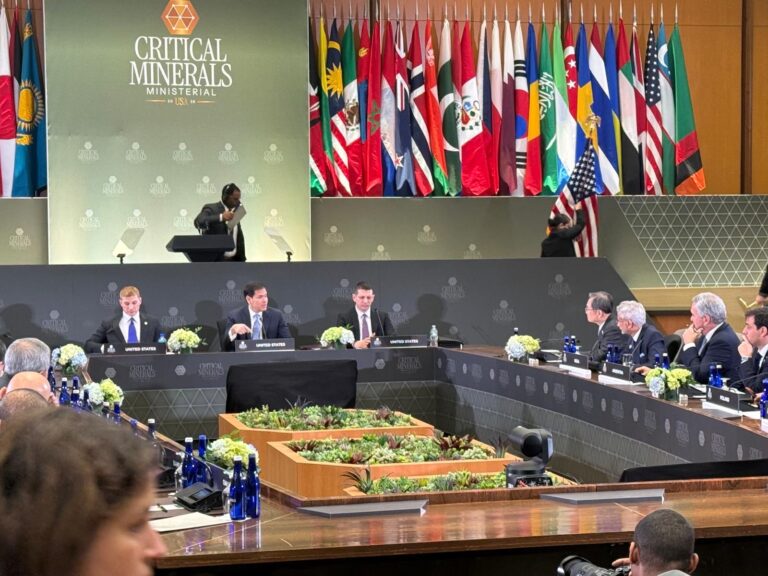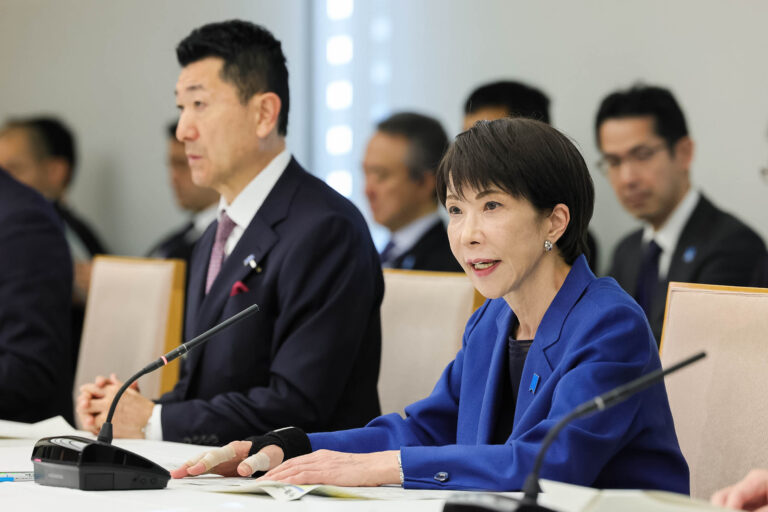
Western states ‘blackmailing’ Damascus?
New York: Outstanding issues related to Syria’s initial declaration of its chemical weapons stockpile and programme still cannot be considered “accurate and complete”, the High Representative for Disarmament Affairs told the United Nations Security Council on December 5.
The High Representative Izumi Nakamitsu said the assessment by the Organisation for the Prohibition of Chemical Weapons (OPCW) was due to “identified gaps, inconsistencies and discrepancies that remain unresolved”, in accordance with the Chemical Weapons Convention. “The international community cannot yet have full confidence that Syria’s chemical weapons programme has been eliminated,” she added.
The representative of Syria however, claimed that Western Governments had attempted for years to use the chemical weapons file as a way to blackmail his country. Recalling that resolution 2118 (2013) stipulates that all chemical weapons in Syria must be eliminated, he said the Head of the Joint Investigative Mechanism confirmed seven years ago that Damascus had implemented the resolution, pointing out that chemical material was destroyed aboard the United States vessel MV Cape Ray. Citing seven years of cooperation with the [former] Joint Investigative Mechanism and the Declaration Assessment Team, he took issue with the word “outstanding”, saying that, if Syria were to close 18 of the 19 issues, 40 more would be opened. “The aim is to keep this file open, to blackmail Syria,” he asserted.
Moreover, he continued, Syria sent a letter to then Secretary-General Ban Ki-moon about a March 2013 chemical missile attack in Khan al-Assal in Aleppo Governorate — on the day of the incident — and requested an investigation. Instead, France and the United Kingdom sent their own joint letter, requesting an inquiry into chemical weapons incidents in Damascus and Homs. Other Governments that sponsor terrorism followed suit, sending 44 letters, he said, adding that, rather than helping Syria, the file was politicized and used to cover up crimes by terrorist groups and their sponsors — actions that continue today. He also described as a scandal the dispatch of an investigation team to Khan al-Assal in August 2013, five months after chemical weapons were used there, and its subsequent diversion to the Damascus countryside. “This incident was never investigated,” he stressed, citing other events in Khan Shaykhun in 2017, and Douma in April 2018. He went on to characterize OPCW as a tool for those opposed to Syria and whose reports lack objectivity. Instead, the reports are based on information furnished by terrorists and their mouthpiece, the so-called White Helmets, as well as false witnesses.
He went on to underline that OPCW denied information provided by Syria and the Russian Federation on the 2018 events in Aleppo, he said, adding that despite inquiries into incidents in October 2017, 7 July 2017, 4 August 2017, 9 August 2017 and 8 November 2017, the fact-finding mission issued no reports. Syria has proven scientifically that the allegations against it are false, having repeatedly presented testimonies by the former OPCW Director‑General, he said, pointing out that Western countries obstructed the latter’s attendance in the Security Council in October 2020. The same month, Damascus sent its monthly report to OPCW on the destruction of production facilities, he said, adding that his country is ready to continue consultations with the OPCW Technical Secretariat and coordinate dialogue on closing all outstanding issues. He went on to condemn actions intended to force OPCW to adopt the French-Western draft decision that falsely alleges Syria’s non-compliance with the Convention. Any decision based on the decision emanating from the Executive Council’s ninety-fourth session would be one-sided, aimed at framing Damascus for the use of chemical weapons and exonerating the terrorists, he stressed, while renewing Syria’s call for OPCW to address its politicization and its own flaws in order to regain its credibility.
The High Representative however informed that the outcome of the seventh round of inspections by the OPCW Technical Secretariat at the Barzah and Jamrayah facilities of the Scientific Studies and Research Centrewill be reported to the OPCW Executive Council in due course. “Syria has yet to provide sufficient technical explanations or information that would allow the Technical Secretariat to close the issue related to the finding of a Schedule 2 chemical detected at the Barzah facilities during the third round of inspections held in 2018,” she said.
She further continued, the OPCW Declaration Assessment Team is working to clarify all outstanding issues related to Syria’s initial declaration, recalling that the OPCW Director-General noted on December 11, 2020 that while some progress was made during the last round of consultations with Syria’s National Authority, 19 issues remained outstanding. One of them pertained to a chemical weapons production facility declared as never having been used for production, she said. However, she said, a review of all materials gathered by the Declaration Assessment Team since 2014, including samples, indicated that production and/or weaponisation of chemical warfare nerve agents took place there.
Syria also has yet to respond to a request by the Technical Secretariat to declare the exact types and quantities of chemical agents produced and/or weaponized at the site in question.
The High Representative for Disarmament Affairs said the OPCW fact-finding mission was studying all available information related to the use of chemical weapons in Syria and continues to engage with Damascus and other States parties to the Convention on “a variety of incidents”. Similarly, the Investigation and Identification Team continues to investigate incidents in which the fact-finding mission determined use or likely use of weapons, and will issue further reports in due course.
Regarding inspections mandated by Executive Council decision EC-94/DEC.2 — “Addressing the Possession and Use of Chemical Weapons by the Syrian Arab Republic” — she said the Technical Secretariat is monitoring the situation and will inform Syria when it is prepared to deploy for that purpose.
“It cannot be repeated often enough,” she emphasised. “There is no justification for the use of chemical weapons by anyone, anywhere and under any circumstances.” She underscored the imperative of holding accountable all those who have used chemical weapons, expressing hope that the Council will “unite on this issue”.
In the ensuing discussion, delegates differed over the impartiality and objectivity of the OPCW’s actions, and whether or not Syria had indeed cooperated fully with the watchdog.
The representative of the United States said that, while there was no disagreement that the use of chemical weapons was unacceptable, Council members were still fighting to uphold the century-old global norm to never use them again. Citing the Council’s obligation to uphold its commitments under the Chemical Weapons Convention and its own resolution 2118 (2013) to hold Syria accountable, he said that in the seven years since Syria’s accession to the Convention, it had failed to fulfil its obligations and sought to make a mockery of the structures in place to create a world free of chemical weapons. The Council was obliged to ensure that there were serious consequences for those who use or have used these arms, he emphasised, declaring: “We cannot remain silent.”
He went on to condemn Syrian President Bashar Hafez al-Assad regime’s use of chemical weapons, often in civilian areas, stressing that it was not a matter of opinion. “It is a matter of fact, confirmed by the OPCW,” and it is incumbent upon the Council to hold Syria accountable under resolution 2118 (2013), he said, expressing support for all efforts towards accountability, which are long overdue to bring justice to the regime’s victims. Accountability is also a confidence‑building measure as part of the broad political process called for in resolution 2254 (2015). “The United States firmly supports the impartial and independent work of OPCW,” he said, applauding its leadership and Technical Secretariat for the credible, objective and professional manner in which it carries out its mission, he added.
In response to the OPCW Investigation and Identification Team findings of Syria’s chemical weapons use, he recalled, the OPCW Executive Council adopted a decision in July 2020 requesting that Syria take measures to redress the situation. In October and December 2020, the OPCW Director-General informed that Syria failed to complete any of the measures set forth in the July 2020 decision, he noted. “The world is still waiting for Syria to complete these measures,” he stressed, calling upon OPCW to take appropriate action when it reconvenes later in the year and to send a strong message to Syria about the consequences of violating the Convention.
Recalling that the United States and 45 others submitted a draft decision at the Conference of States Parties in response to Syria’s failure to fulfil the measures requested, he declared: “We, as the Council, must call on all countries to support this decision,” aiming to promote accountability for the Assad regime’s actions. The Russian Federation is carrying out an accelerated public campaign to discredit OPCW, he said, stressing that “the world is not fooled”. What is true is that the Assad regime used chemical weapons against its own people, and OPCW demonstrated that credibly and objectively, corroborating information offered by non-governmental groups, he said. The Russian Federation should encourage Syria to “come clean” about its use of chemical weapons and its current stocks, he said. “It is time for the Assad regime to uphold its commitments under the Chemical Weapons Convention.”
However, the representative of the Russian Federation welcomed the absence of opposition among Council members to holding the UNSC meeting on the Syria chemical weapons dossier, while underscoring his delegation’s approach to transparency and facts. Recalling remarks by independent experts during an Arria-formula meeting in September 2020 and a closed briefing by former OPCW Director‑General in October 2020, he noted that their statements provided objective assessments. The current Director‑General, however, finally addressing the Council in December 2020, repeated what was already known to all and avoided answering questions raised during the meeting, he said. “He should appear in the Council again to answer those questions,” he demanded and went on to state that Syria voluntarily joined OPCW at the Russian Federation’s suggestion and destroyed all its stocks of chemical weapons. He recalled that, in 2014, the Syrian military’s chemical programme was completely closed, its chemical weapons stockpiles liquidated and chemical weapons production facilities destroyed, pointing out that OPCW has repeatedly confirmed that. All these years, several States continue to use a “chemical card” to increase pressure on the Government of Syria.
Western countries have repeatedly put forward extremely serious accusations against Damascus, citing such inconclusive evidence as videos from social media and “testimonies” provided by knowingly biased witnesses from the anti-Government opposition or the notorious “White Helmets”. Evidence to the contrary presented by Syria, the Russian Federation and some independent experts and organisations was ignored, the Russian representative said, adding that the number of frauds, manipulations and internal violations within OPCW reached a critical mass by the beginning of 2021. “The most striking examples are egregious irregularities in the investigation of the incidents in Khan Shaykhun in April 2017 and Douma in April 2018,” he said. Calling attention to the testimony of a former OPCW inspector that the conclusions about the use of chemical weapons in Douma were falsified under direct pressure from Western countries, he said the Investigation and Identification Team’s 2017 report about Ltamenah was the culmination of all bad-faith efforts by the Technical Secretariat. “The OPCW Executive Council’s decision in July 2020 to declare alleged remaining chemical weapons and related objects, which simply do not exist, imposed obviously impossible conditions on Syria. Naturally, Syria cannot fulfil such an ultimatum,” he emphasised, warning that the West was trying to initiate the process of denying Syria’s rights in OPCW. He expressed hope that most delegations to the Conference of States Parties in April will refuse to participate in that attempt initiated by a group of Western countries.
Many countries had similar problems in their initial declarations, but for some, they were “minor flaws”, he said, noting that additional declarations of certain stocks happen all the time and are not extraordinary. The United States regularly updates its declaration, joining the ranks of Canada, Belgium, France and Germany, he continued, pointing out that about 500 undeclared munitions were found in Libya in 2021. In Iraq, the initial declaration was not confirmed at all, as it was done only on the basis of available United Nations documents, he noted. Reiterating that Syria’s initial declaration is not exceptional, he called upon the OPCW Director‑General to explain why the Technical Secretariat openly resorts to the practice of double standards, “forgiving” minor flaws in one country while fanning accusations against others. OPCW’s problem is broad and systemic in nature, he said, calling it a crisis of trust in what was once one of the most authoritative international organisations. “Unfortunately, it has turned into an instrument of political manipulation and punishment,” he added, describing OPCW as seriously ill with politicisation.
The representative of China said that alleged uses of chemical weapons must be investigated in an objective, transparent manner and on the basis of factual evidence. Syria’s expressed willingness to cooperate with the Technical Secretariat deserves recognition by the Council, he said, emphasising that the detailed reports presented to the Council by that country’s representative also deserve its full attention. He went on to emphasise that Syria is a legitimate United Nations Member State, deserving of respect, warning Council members against calling that country’s Government a “regime”. Stressing that investigations should not be unduly hasty, he urged OPCW to present complete evidence with no loose ends. The Technical Secretariat’s work must be science-based, he said. Noting the prevailing challenges and sharp divisions, he urged States parties to the Convention to avoid forced voting and requested that the OPCW Director‑General respond publicly to questions answer raised.
The representative of India encouraged engagement and cooperation between Syria and the OPCW Technical Secretariat towards early resolution of all outstanding issues, noting that his country provided $1 million to the OPCW Trust Fund for activities relating to the destruction of chemical stockpiles in Syria. Strongly condemning the use of chemical weapons, he called for an impartial, objective investigation into any alleged use in Syria, and expressed concern that the weapons could fall into the hands of terrorists, who have taken advantage of the decade-long conflict in the country. “The world cannot afford to give these terrorists any sanctuary,” he emphasised. Noting that India has consistently called for a comprehensive and peaceful resolution of the conflict through a Syrian-led dialogue, he said India remains supportive of both the Geneva and Astana processes for an expeditious resolution of the conflict.
The representative of France noted that no progress has been registered, yet simple gestures could be made and it is incumbent upon the Syrian regime to make them, firstly to shed light on its initial declaration. Asking how it could be explained that 19 issues remain open seven years after resolution 2118 (2013), or that new questions “continue to add to the old ones”, he called for clarity around the production sites evidenced by OPCW. The fact-finding mission, meanwhile, has evidence gathered in 2019, including witness statements and samples related to events in Douma, which it presented with clear conclusions. He went on to recall that the first OPCW report stated that responsibility for three chemical weapons attacks in March 2017 falls to the regime, yet the authorities have taken no measures to come into compliance. That is why France submitted to the OPCW secretariat a draft decision on behalf of 46 delegations in November 2020, to be forwarded to the Conference of Parties in April. He went on to lament the “mendacious accusations of those trying discredit the OPCW”, emphasising that “there is no conspiracy”. There are simply facts, he said. “The regime has used weapons of war banned under international law against its own population.” The fight against impunity and against the use of chemical weapons remains the rationale behind France’s partnerships and actions, he added.
The representative of the United Kingdom expressed regret that, seven years in, Syria’s declaration can still not be considered “accurate and complete”. Its unresolved issues — including the unaccounted-for whereabouts of thousands of munitions and hundreds of tons of chemical agents — are both serious and substantive, she said, also citing OPCW evidence that a facility previously declared by Syria as not having been used to produce chemical weapons, was indeed used to produce or weaponise chemical warfare nerve agents. “The ongoing threat posed to international peace and security by these unresolved issues is not hypothetical,” especially for the thousands of Syrian civilians who have suffered the horrifying effects of such agents, she said, emphasising that the recent closure of three unresolved issues demonstrates that, contrary to some assertions, resolution is possible if Syria chooses to engage genuinely and constructively.
The representative of Turkey said his delegation has analysed the OPCW Director‑General’s eighty-seventh monthly report on Syria’s chemical weapons programme and its findings deepen its concerns regarding the outstanding issues in relation to the Assad regime’s initial declaration. Of the 19 outstanding issues, one is particularly alarming, he said, emphasising that a chemical weapons production facility obviously exists, in stark contradiction with the regime’s claim to the contrary. “This is yet further proof of the declaration’s fraudulent nature,” he added, stressing that the regime must immediately declare the full extent of its chemical weapons programme. The OPCW Executive Council’s decision of 9 July 2020 remains particularly important, he said, noting that it set clear and verifiable parameters for action and required the Syrian regime to return to full compliance with the Convention in 90 days. Turkey co-sponsored that decision alongside 45 other States parties, which will be considered during the second part of the twenty-fifth Conference of States Parties, he noted. It is high time to take concrete action to ensure accountability in Syria, he said, declaring: “We have enough evidence for the culpability of the regime.” He went on to underline the special responsibility of those with influence over the regime in that regard. He added that he would not respond to statements by the speaker from Syria, saying the delegate is not the legitimate representative of that country and its people.
– global bihari bureau





